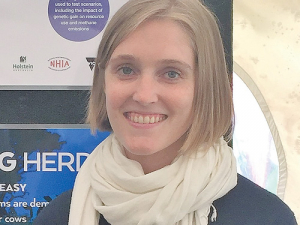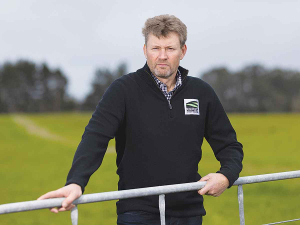Twenty-seven dairy farms in Australia will be put under the microscope in an effort to prove a link between genetic merit of animals and onfarm performance.
Speaking as part of last month’s Future Ready Expo in Bega, research scientist Dr Jo Newton said the Improving Herds project will ensure the science behind genetics is backed up by real-world application.
‘’It’s one thing to do genetic research in an office building somewhere, but it’s another to actually take what you’ve learned and translate it into real onfarm applications and results,” says Newton, from the Victoria Department of Economic Development, Jobs, Transport and Resources (DEDJTR).
The project has genome tested each focus farms’ rising two-year-old heifers, totalling 2500.
“So now we already have information about the genetic merit of these animals before we know their lactation, their susceptibility to disease, etc, and through the lifetime of the project we will be able to follow these cows through their first lactation, through their second lactation and see how their performance in the dairy translates back to their predicted genetic merit,” Newton says.
“We’re looking to demonstrate the value that better data recording and high genetic merit can contribute to farmer profit.”
Previous research has confirmed that high genetic-merit cows are more profitable.
‘’The focus farm model enables the information to be gathered at various regions and various types of farm systems.’’
Newton says environmental factors such as mastitis are accounted for within the study.
“’One of the advantages of looking across many different focus farms is that we can look within a herd. ’And when you are comparing animals within the same herd, they are subject to the same management routines and environmental conditions.”
The Improving Herds project has been developed by the Gardiner Foundation, led by DEDJTR and supported by Dairy Australia, ADHIS, National Herd Improvement Association and Holstein Australia.


















